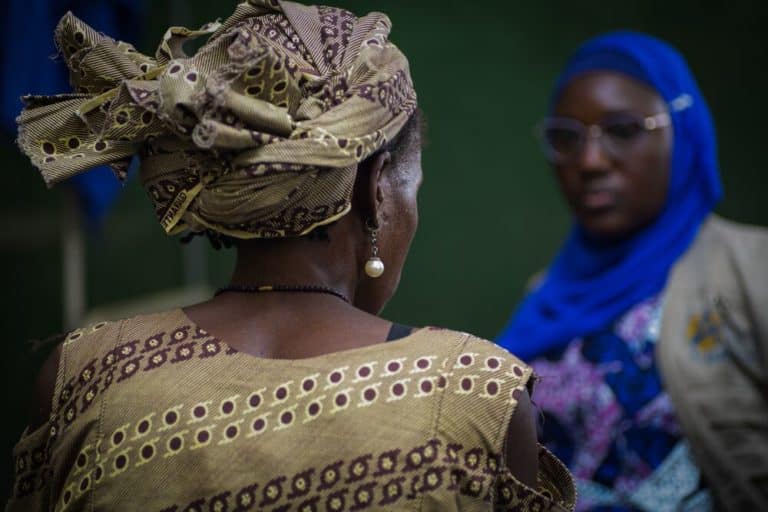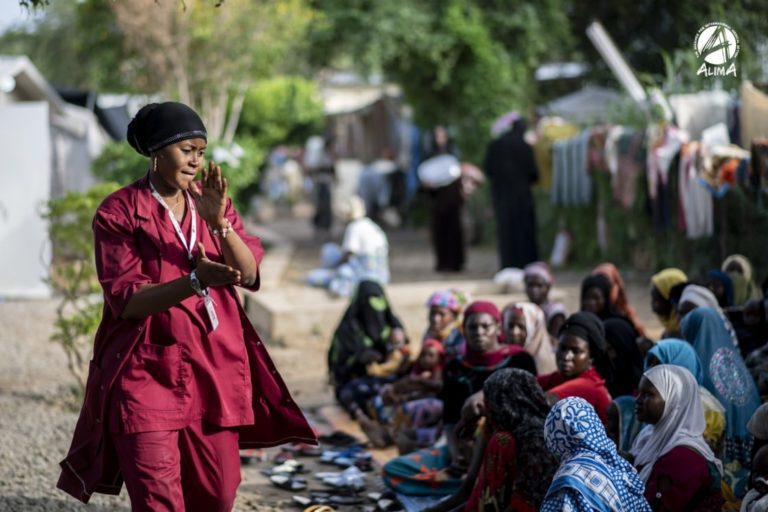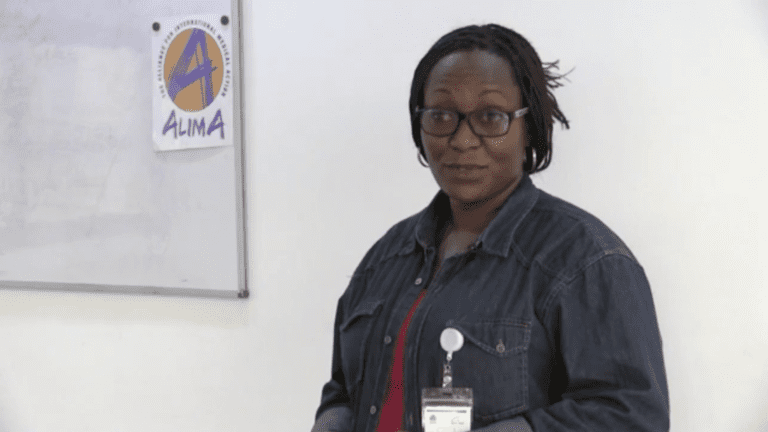The nutrition unit of the China-Chad Friendship Hospital, located in the capital, is supported by ALIMA and its Chadian partner “Alerte Santé”. In recent months it has been facing an influx of children suffering from severe acute malnutrition. ALIMA is urgently calling for all national and international health organisations in Chad to increase hospital inpatient capacity for treating severe acute malnutrition in N’Djamena.
“Our teams have used every available space to install beds. Lobbies have become inpatient rooms and mattresses are strewn in corridors, “describes Moumouni Kinda, programme manager for ALIMA.
ALIMA has rapidly increased the number of beds in the unit from 70 to 120 to cope with the increasing number of admissions, but sick children keep coming. “The nutrition unit has reached its full capacity. We are worried that we won’t be able to continue to accommodate all children and provide quality care,” he continues.
The Chadian medical staff at ALIMA and local partner Alerte Santé work tirelessly to provide the best possible care for sick children. “There are many outpatient centres that can detect acute malnutrition in N’Djamena, and ten more centres are currently being opened. But the nutrition unit, supported by ALIMA, is the only place where free emergency treatment is available for malnourished children in a critical condition, “said Dr Kinda
Childhood malnutrition is a major public health problem in the Sahel. In Chad’s capital city N’Djamena, the number of cases is increasing at a significant rate. This is mainly due to a growing population and the economic crisis.
“We estimate that between 30,000 and 40,000 severely malnourished children will need to be supported during 2016. This will require a capacity of nearly 300 beds in the capital” explained Dr Kinda. Since the beginning of the year, over 15,000 children have already had emergency treatment from ALIMA/ Alerte Santé in the capital.
Health authorities and medical organisations on the ground are doing their best to tackle malnutrition. But relying on outpatient nutrition centres alone will not solve the urban problem of malnutrition. “We call on all actors to quickly mobilise to enhance hospital capacity in the capital,” said Dr Kinda.
ALIMA has been delivering medical and nutritional care in N’Djamena and Gouri since 2012. In 2015, more than 22,000 children with severe acute malnutrition, and almost 20,000 children with malaria were treated by ALIMA and its Chadian partner Alerte Santé.



